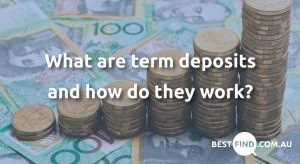Stinginess vs Frugality: Ditch one and embrace the other
According to the gospel of personal finance, ‘saving money’ is the Holy Grail of financial independence. But once you embark on this path who’s to say you’re being frugal, not stingy? And what’s the difference between the two? Let’s take a closer look.
Scrooge vs Gandhi
If your determination to not part with money goes overboard, the world has reserved a few names for you: miserly, niggardly, tight-fisted, mean, plus a few more choice words. Yes, these are all synonyms for stingy, but clearly, there’s not much good to say about individuals with Scrooge-like qualities.
On the other hand, being frugal is often associated with thriftiness, carefulness, caution, prudence, self-discipline, and good management. All qualities that would make Gandhi proud.
However, due to the paper-thin line between frugality and stinginess, it’s easy to get lumped together with the bad apples when all you’re trying to do is channel a bit of Gandhi. Or worse, you might end up morphing into an unpleasant caricature of Scrooge without realising it.
This requires us to break down the difference between the two, so you can easily stay on the financially and socially acceptable road to monetary freedom.
Reclusive vs Sociable
Is money more important to you than family and friends? There’s a cost to having a healthy social circle, and most stingy people are not willing to pay for it. For instance, they’ll turn down invitations to social events, gatherings, or dates that require money until their friends no longer bother to ask. Stinginess can, therefore, turn you into a social loner.
In contrast, frugal individuals are willing to pony up some of their savings to maintain relationships with the people around them. They realise there’s a way to still spend less while enjoying special company. For instance, they’ll look up discounts when visiting restaurants or stick to affordable options. They may also organise bring and share get-togethers or put together picnic dates to keep things economical.
Selfish vs Considerate
Sometimes the only way to show your care for loved ones is by spending on them. Stinginess can quickly turn into selfishness when you’re reluctant to invest in making others happy. This is by no means an obligation, but it leaves you focusing on the value of money rather than the value other people bring into your life.
Frugality is quite the opposite. You can still be frugal and considerate. This involves simple things like leaving a tip to show your appreciation of wait staff, shopping for affordable but meaningful gifts during holiday season and special occasions, or even splashing out on an expensive purchase or experience for the sake of another person’s well-being or pleasure.
Time-wasting vs. Time-saving
Cheapskates have been known to devise extreme means of saving money. There’s dumpster diving for expired food, coin hunting, and going to the other side of town to buy something that’s a dollar cheaper than the milk bar around the corner. But frugal people prefer to be economical with both their time and money. Each second they invest should bring tangible and reasonable rewards.
By way of example, a frugal person might spend time tracking down cheaper service providers, goods, and grocery items. If this helps them save hundreds of dollars, then it’s well worth it. At the end of the day, you should not have blinders when trying to save a buck or two. Frittering away a big chunk of time to save a disproportionate amount of money is not the way to go.
Narrow thinking vs Wisdom
Another way stingy people have blinders is when they choose a low price over quality, even when it doesn’t make financial sense. The famous author, Terry Pratchett, manages to explain this concept through Samuel Vimes, a cynical character in his Discworld books:
The reason that the rich were so rich, Vimes reasoned, was because they managed to spend less money.
Take boots, for example. He earned thirty-eight dollars a month plus allowances. A really good pair of leather boots cost fifty dollars. But an affordable pair of boots, which were sort of OK for a season or two and then leaked like hell when the cardboard gave out, cost about ten dollars. Those were the kind of boots Vimes always bought and wore until the soles were so thin that he could tell where he was in Ankh-Morpork on a foggy night by the feel of the cobbles.
But the thing was that good boots lasted for years and years. A man who could afford fifty dollars had a pair of boots that’d still be keeping his feet dry in ten years’ time, while the poor man who could only afford cheap boots would have spent a hundred dollars on boots at the same time and would still have wet feet.
Replace poor man with stingy man in the above quote, and you’ll have hit the nail right on the head when it comes to a critical difference between frugality and stinginess.
Miserable life vs Quality life
Looking at all the comparisons we’ve made, being stingy boils down to having a low quality of life while frugality maintains or improves life quality. Here’s how:
Frugality
- Contentment – you don’t have to wait for financial independence to start enjoying life.
- You have stronger relationships.
- You can still spend money on quality items and experiences and yet not freak out because you recognise the value in these things.
Stinginess
- Too attached to saving every dollar, which can be stressful and time-consuming.
- Unable to enjoy life’s pleasures.
- Miserly behaviour that alienates people around you.
- Focusing on short term savings, but spending more in the long run.
Final thoughts: Why you should choose frugal living
While it is true that spending less and saving more can catapult you to financial freedom, it also doesn’t mean you have to sacrifice your happiness along the way. When you choose frugality over stinginess, the journey might be longer, but it’s bound to be more comfortable. And when you finally find financial independence, the experience will be sweeter because of the investments you’ve made along the way. You’ll have loving friends and family plus many precious memories and experiences that add depth and meaning to your life.
Latest posts

What You Should Know: Comprehensive vs. Third Party Car Insurance.
28.07.2020

What You Need to get a Mortgage in Australia
11.04.2019

What is a term deposit and how does it work?
04.06.2018
